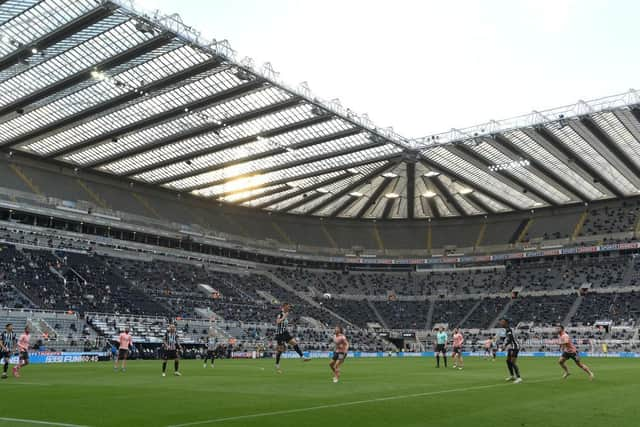Arbitration legal expert explains Newcastle United takeover case with Premier League – and key decision timeframes
and live on Freeview channel 276
Dates have been speculated on, almost continuously. None more so than this week. One thing we do know, referring to the Competition Appeal Tribunal legal papers is that the Premier League arbitration hearing with Newcastle United is set to start this month, or at least it was when the papers were released.
So, is it ongoing or is it yet to start? Will they settle out of court, will they not – and what about the CAT case?
Advertisement
Hide AdAdvertisement
Hide AdIf you're confused about the whole situation, we asked Paul Stothard, a partner at international law firm Norton Rose Fulbright, to explain it all in layman's terms.


Stothard specialises in representing companies in arbitration proceedings including Premier League and Championship football clubs. He is also a Newcastle United supporter and has first-hand experience of the top flight arbitration process, having represented Sheffield United in the 2007 Carlos Tevez and Javier Mascherano saga.
So what is arbitration, how long will it take and is the judgement legally binding? Here's all your questions answered...
What is arbitration?
Arbitration is a legal process for resolving commercial disputes where, for one reason or another, parties prefer not to go to court e.g. they want to keep the process confidential or have some control over the process, such as appointing an experienced specialist as the arbitrator instead of a judge. Since the Premier League was established, the rules governing the league have always contained a legally binding arbitration agreement. This means that all participants in the Premier League, including clubs and Premier League executives, must use arbitration for any disputes between them about how the rules are applied.
What is the process?
Advertisement
Hide AdAdvertisement
Hide AdArbitration is flexible and the process may differ depending on the nature of the dispute. In this case, the process is likely to be split into four phases:
-Written statements - both parties put their case and defence and details of the remedy they seek.
-Evidence – both parties exchange witness statements and documents. This includes the process called “disclose”, where the parties can be forced to produce documents that they might otherwise wish the other side not to have.
-The hearing - the lawyers cross-examine witnesses and experts and try to persuade the arbitrator that they have the better case. If the arbitration hearing is now taking place, this means that the arbitration is reaching its conclusion.
Advertisement
Hide AdAdvertisement
Hide Ad-The decision - the arbitrator renders a written judgment with reasons called an “award”. This award is final and binding and is broadly equivalent to a court judgment. If necessary, the award is enforceable through the courts.
How long do these things normally take from experience?
Arbitration can take anything from a few weeks to several years depending on the complexity of the issues and how busy or obstructive the parties and their legal teams may be.
With this being an expedited arbitration do you envisage a decision within weeks or months of the hearing taking place?
If the arbitrator accepts that the dispute is genuinely urgent then the process may be “expedited”. I have seen expedited Premier League arbitration resolved as little as six weeks from start to finish. In that case, the urgency was clear: the outcome would decide whether a club was relegated or not. We had a very short timetable between the various phases of the arbitration. The arbitrator also wrote and issued the award just two weeks after the hearing instead of several months as can often be the case.
Will the result of the arbitration be made public? And if so, how?
Arbitration, including the award, is private and confidential by default. The result will not usually be made public unless the parties agree or unless the result is mentioned in related court proceedings (see below). Having said that, given the public interest in Premier League disputes, the parties usually agree either to release a copy of the award or a summary of the key points.
Is there a right of appeal in this process?
Advertisement
Hide AdAdvertisement
Hide AdThere is no appeal. Arbitration under the Premier League rules is self-contained and there is no link to international bodies such as the Court of Arbitration in Sport (“CASS”). In some limited circumstances, such as where something has gone seriously wrong with the arbitration procedure, it is possible to ask the High Court to intervene. This is very difficult to do and it cannot result in the court arriving at its own decision. English courts strongly support the arbitration process where possible and, save in exceptional circumstances, the award in the arbitration will be the final word on the matter.
